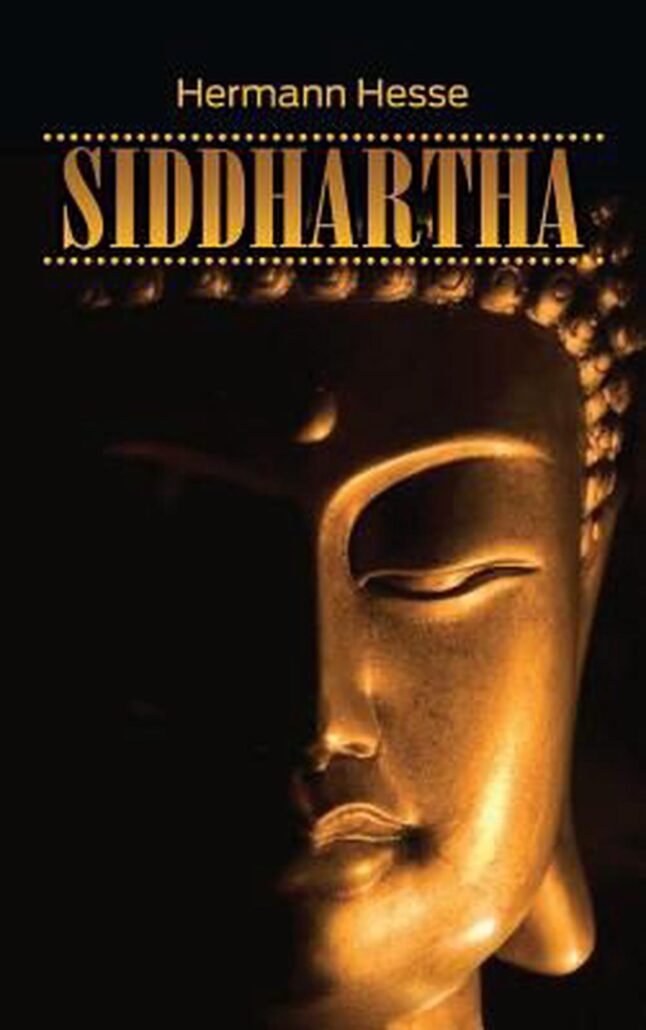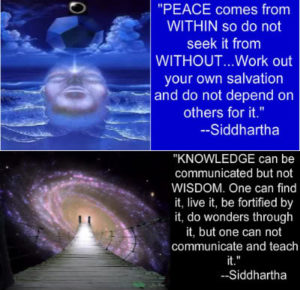Siddhartha
Author : Herman Hesse
Genre : Philosophy, Literature

One of IIML’s most loved professors, Dr. Neerja Pande, personally gifted it to me with the message: In your path of self-discovery! Since then, I have in-turn gifted and recommended it to dozens of my friends and everyone has vouched that this book is life-changing.
Siddhartha, Siddhi + Arth means ‘he who has found the meaning (of life)’, is just the book a ‘seeker’ could ask for: a young, intelligent man’s quest for fulfillment and peace. Nobel Laureate, Herman Hesse wrote it a hundred years ago, packing deep insights in this book’s simple lyrical format, devoid of any motherhood statements or high moral grounding.
The story is set in India at the time of Gautam Buddha and shows various phases of the protagonist’s life:
He is born in a very learned Brahmin family, but ‘bookish’ knowledge appears incomplete to him. He masters them but remains skeptical if those chants and ceremonies are the right path.
He leaves the house and practices rigid asceticism in the forest, trying to control and master his senses. But is still not convinced why we are giving so much pain to the body if the motivation is to go beyond pain.
He even meets Gautam Buddha, and while he finds the teachings very wise, he is not sure those can directly be reapplied in his life as a ready-made solution. Another aha moment: We seek Buddha’s personal state of tranquility but none of his followers ever reached that state!

He then realizes he may not need a teacher. He needs to find his own path. He also realizes that we shouldn’t run away from life, but instead enjoy its many shades with a spiritual detachment. He says: Meaning and reality were not hidden somewhere behind things, they were in them, in all of them.
He practices business and becomes rich. Kamala, a courtesan, teaches him the art of love… these sensual pleasures excite (wouldn’t it be a hypocrisy to deny the temptations of the body?) and tempt him. Eventually, however, the life of senses also leads to boredom, a game devoid of fulfillment. One of the most poignant sentences in the book: Gradually his face assumed the expressions which are so often found among rich people – the expressions of discontent, of sickliness, of displeasure, of idleness, of lovelessness.
So he moves on again and lives near a river. At one stage, Siddhartha feels he is ready, only to fall back into the trap of attachment when his son runs away. But he finally succeeds and radiates with the light of enlightenment. He finds solace near the river, a metaphor for the constant flow in life. Maybe happiness lies in accepting things as they are, playing dispassionately in the ‘here and now’ and knowing that we all need to find our own path!

Hesse borrows heavily from Gita & Upanishads. Unfortunately, this leaning towards Eastern religious thought led to some controversy with the teaching of books in the West, and for the first 30 years, the book was hardly a success. It sprang into limelight during the hippie movement of 1950s and 60s as the desire to ‘know thyself’ became more pronounced in an increasingly materialistic world.
Why should you read the book: To discover our own unique purpose and meaning and to know that it cannot be taught to us by any teacher. To know that life may be about being ‘detached’, and balancing the masculine – intellect, reason, discipline – with the feminine – emotions, love, senses.
Goodreads Link: Siddhartha by Hermann Hesse | Goodreads

 This information will never be shared with third party
This information will never be shared with third party
Great
What a review!
This book is surely depicting the “meaning of life” and one’s behaviour towards the outside world. It is all about the experience and one should read this book if they are facing difficulty in choosing a path.
Provides great insights into the nature of the book, compelling readers to dive straight in!
The insights of the book are very well depicted.
Ver nice